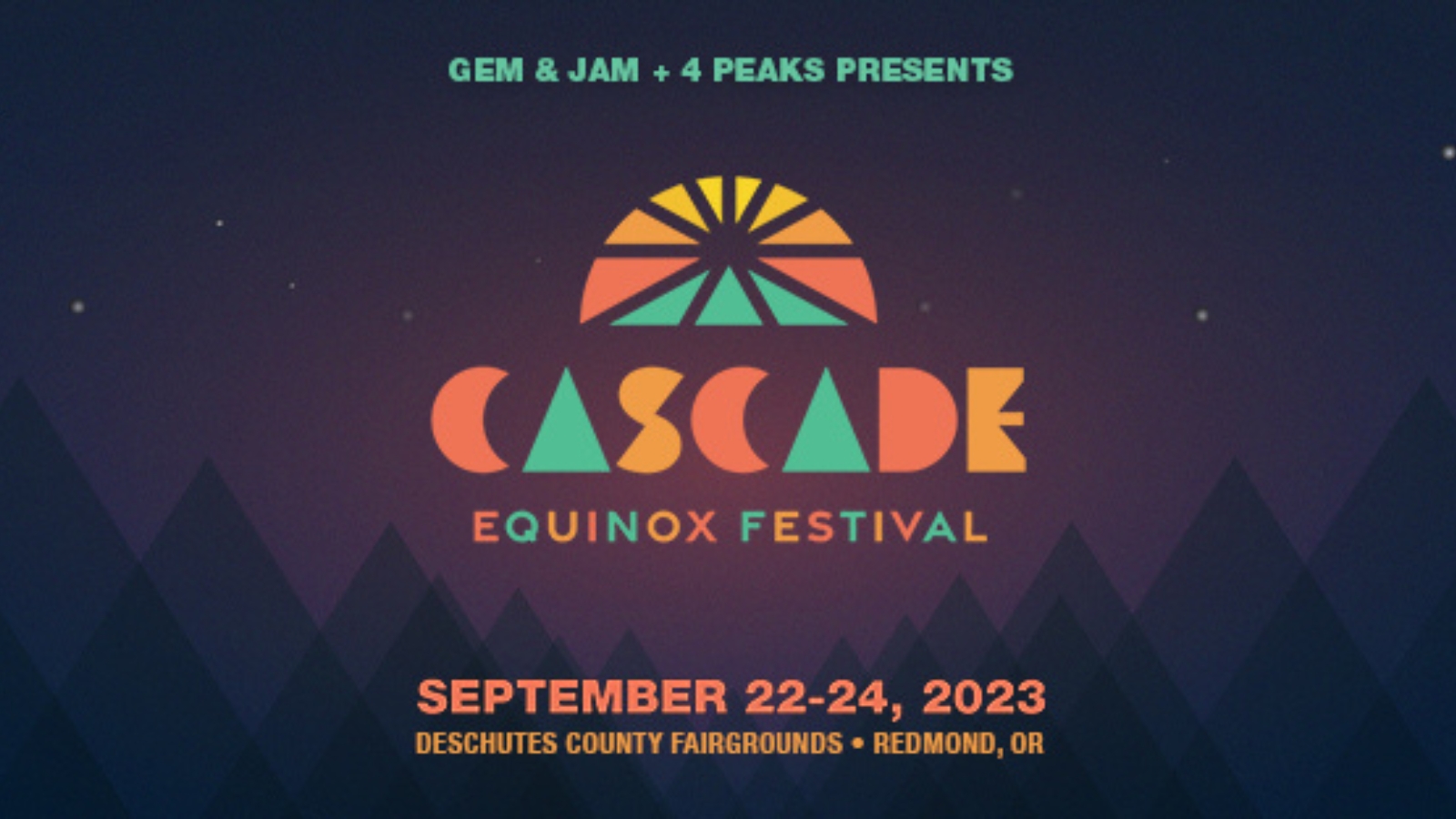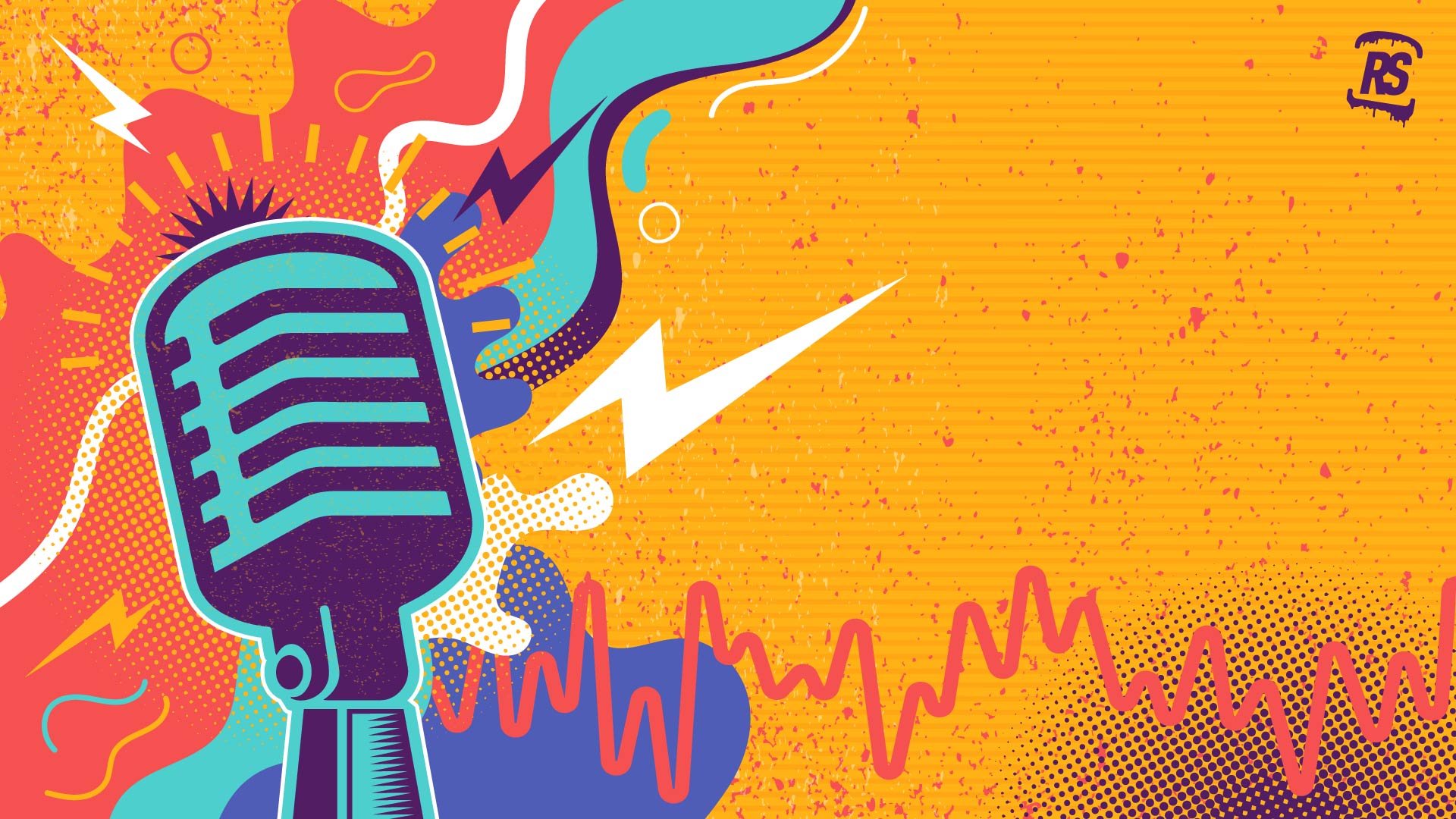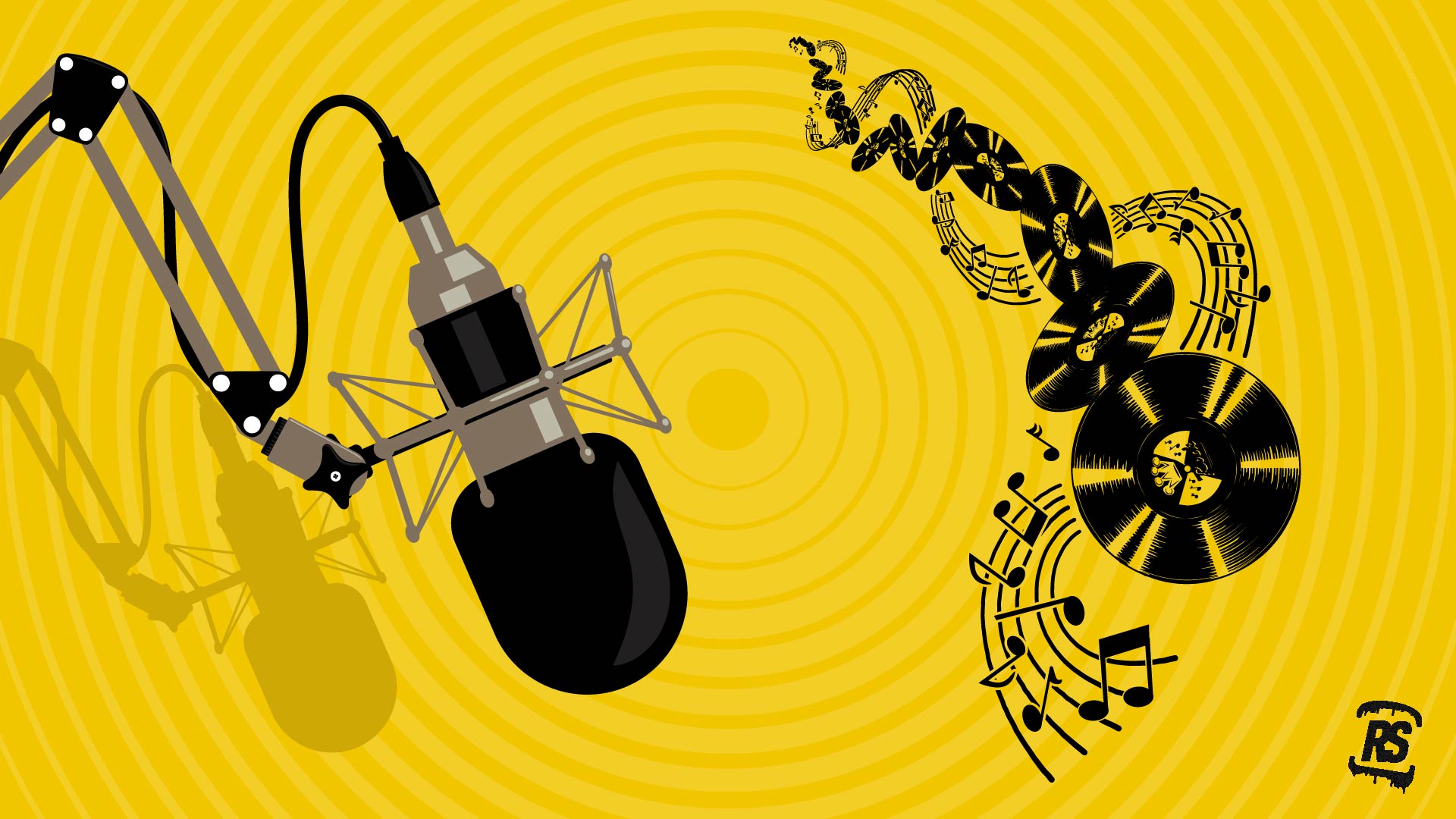Welcome back, Reality Sandwich fam! We are incredibly thrilled to give you an exclusive peek behind the curtain of the much-anticipated Cascade Equinox Festival. This immersive festival experience, taking place amidst the stunning panorama of the Deschutes County Fairgrounds, is more than just a music event – it’s a community celebration. And who better to guide us through this festival’s vibrant ethos and vision than the co-founder himself, Josh Pollack?
From eclectic musical performances to workshops, healing sanctuaries, and everything in between, Cascade Equinox promises a transformative journey that caters to all our psychedelic hearts’ desires. Join us as we delve into an in-depth conversation with Josh, exploring the origins of Cascade Equinox, what sets it apart, and what to expect from this year’s grand spectacle.
So, let’s buckle up and journey together into the heart of the Cascade Equinox Music Festival – a convergence of music, art, culture, and conscious living. This is your all-access pass to everything Cascade Equinox, straight from the festival’s co-founder. Read on and immerse yourself in the magic that awaits!
Cascade Equinox Event Details
When: Friday, September 22, to Sunday, September 24, 2023
Where: Deschutes County Fairgrounds, Redmond, Oregon
Where to learn more: visit the Cascade Equinox Festival website

Kyle Rosner: Josh, it’s a pleasure to introduce you to the Reality Sandwich audience. Could you give us an introduction and share a little about what you do?
Josh Pollack: Yeah, thanks so much. I’m a big fan of the outlet and have been following it for years. So when this opportunity came along, I was jumping at the chance to chat and give you a little bit of insight about the festival. It’s called the Cascade Equinox Festival. It’s a first-year event happening at the Deschutes County Fairgrounds in Redmond, Oregon, which is about 10 minutes outside of Bend.
The team producing the event is also behind the Gem and Jam Festival and another festival called Four Peaks Festival, which is a bluegrass and folk festival that’s happened in Bend for about 10 years. Both of the teams are coming together and forming this partnership.
For this festival, we’re combining a lot of the elements. Gem and Jam Festival is an annual event that we do in Tucson, Arizona so we’re kind of bringing it to the Pacific Northwest and just creating a unique event that has a lot of different genres of music.
We like showcasing a lot of different regional artists whether it’s local musicians or live painters. That also includes food, beverages, beer, and wine. We’re focusing on the Pacific Northwest region and showcasing all of these amazing things that go on up here. And there isn’t another event like this that is currently happening in the state of Oregon. So we’re excited for it and it feels really good to be embraced by the local community and the regional community in the Pacific Northwest. The whole region has been wanting something like this. We couldn’t be more thrilled.
KR: I’ve been fortunate enough to attend Gem and Jam, which is incredible. Obviously what excites us is this intersection of psychedelic art with the musicians and what you guys have going on.
JP: That’s great to hear. As you know with Gem and Jam, the focus is really on the creative elements not just focused on the music. So there are a lot of other things going on that are heavily artistic like installations and live painting and gallery offerings. That is just such an important part of the festival experience and we’re trying to provide a source of inspiration for people. And the music is great, but creating different mediums for that inspiration to brew and percolate is something that we found works well with Gem and Jam and other festivals that we’re inspired by. We’re kind of calling Cascade Equinox a festival reimagined.
KR: That’s great to hear. What’s your background in getting into the festival scene? And what do you specifically bring to the table in terms of this event?
JP: I started going to music festivals frequently once I started college back in 2002. I always loved live music and going to concerts and then going to a festival was kind of like the next evolution of trying to consume as many concerts and live music as possible. Instead of going to a club or a venue and having four, or five hours of music and dancing and great times – I was exposed to the idea of a full weekend and some of these immersive kinds of offerings and camping on-site, just having that experience.
The first couple of events that I was involved with were after-parties, for the band Sound Tribe Sector 9. I was really into them in the early 2000s and first couple of years of college and would go around traveling with them on tour, trying to see as many shows as possible. And there was never anything going on after the shows would end at midnight. Our friends would still be trying to dance – still wanting to keep the party going – and there were never any options for late-night music going on. So I started doing after-parties for the band I was living in Boulder, Colorado at the time and they were headlining Red Rocks for the first time. This is now fast forward to 2006.
The first time they headlined Red Rocks I put together an after-party for them. And the stars just aligned. It went amazingly well and people were having the best time of their lives. Had music going until sunrise which is our main goal and the concept kind of snowballed from there. We were doing more and more parties, and this eventually coalesced into Gem and Jam, which had been going on for about six years. Around 2010 they took a break and when they came back in 2012, I got involved.
I had a connection with the owner and we had worked together on an event in San Francisco called Bicycle Day, which is another event that I’ve been doing for the past 10 or so years. And I’m sure you’re familiar with Bicycle Day.
KR: Absolutely. We’re big fans of Bicycle Day at Reality Sandwich.
JP: So we collaborated on Bicycle Day. It was the first year that we did that at a big party in San Francisco, and we decided to collaborate again. The owner of the festival wanted to bring back Gem and Jam and asked if I wanted to get involved. I took that opportunity and then the rest is history. It’s been 11 years since I’ve been involved in that and our team is clicking and things are more dialed than they’ve ever been.
Now having the new home at Pima County Fairgrounds, we realized how great it is to work with an established venue, hence the reasons we chose the Deschutes County Fairgrounds. They have a ton of infrastructure, they come with a lot of things already in place as opposed to going out somewhere and having to build everything from the ground up and bringing in just about everything.
KR: We’re not raving in the corn fields anymore.
JP: Yeah, I mean, I still love going to those kinds of underground events, out in the forest or the cornfields. But in terms of creating something a little bit more sustainable.

KR: I’m not sure if you’ve seen the Woodstock 99 documentary…but a lot of things can go wrong with poor festival planning. How do you work hand in hand with the local community and local vendors to ensure everything goes smoothly?
JP: That’s a great question. So, these country fairground venues have been pillars in their local communities. They’re kind of a hub in a way for bringing people together so we’re able to kind of plug into their networks and kind of get some local credibility in a way by teaming up with them. They know what our events are all about and they want to do something different than their normal programming or that their usual demographic is used to. But I think that in terms of the crowd in Bend and Redmond, people have just been so thrilled that an event of this magnitude and this style is coming to the area. So I think that it has given us resounding positive feedback which is awesome to see and hear.
And people see the lineup and they see artists that they know and that are familiar to them because they’ve seen them in their local towns and venues. And I think that that goes a long way. I think some of these much larger corporate festivals don’t pay homage to the local music community, and the local scene and don’t do enough to engage those local musicians and local artists who have been building the scene in whatever city that giant festival is coming to. So that was super important to us. And we’re going to continue to do that. Trickling down through all of the different experiential items and different zones that we’re curating and trying to just focus on that because it empowers people.
KR: Have you tried to integrate cannabis into Cascade Equinox? Central Oregon has a huge local cannabis scene. What is the future of cannabis integration that you see at festivals?
JP: It’s been something that I have been interested in at least at the venue level and doing more integrations to normal, club events or venue events festivals. It goes hand in hand, it’s so blatantly obvious. People use cannabis at festivals. There might as well be a sanctioned area where you can have the retail experience where you can go and buy your goods onsite and don’t have to worry about any sort of authority or getting in trouble. And then having sanctioned smoking lounges.
What they’ve done at Northern Nights is amazing, and it’s set the template for other events to be able to do the same. That being said, that is something that we want to do in the future. I think that for this first year, we’re just focusing on doing a couple of things well and we want to integrate cannabis zones and retail and smoking lounges in the future.
KR: Along with cannabis, I feel psychedelics and music festivals go hand in hand. I’ve appreciated places like Gem and Jam, where you’ve had Dance Safe there in the past. The war on drugs is winding down and I think everyone has to acknowledge that psychedelics and substances are going to be used at festivals. How do you mitigate that experience? How do you make sure everyone is safe?
JP: Absolutely. Yeah, exactly what you said is super true. Having Dance Safe on site is essential. Because they give out a ton of information, they’re super resourceful. They’re non-judgmental, they are synonymous with drug safety and education, which is more important now than has ever been before. so having entities like Dance Safe on-site is imperative and we’re going to have them at Cascade Equinox.
And then also having a medical team that is well trained in harm reduction – it’s so important at events like these where psychedelics are prevalent as well as just drug use in general, instead of having a medical team that isn’t well equipped to deal with people who are, having a tough time while on psychedelics or any other substance. It’s so important to have people who can deal with those situations as they come up and be able to talk to people and give them a quiet space and just be able to help them through the experience. Instead of just, calling an ambulance and whisking them off to the hospital because that doesn’t do any sort of good for the person who’s going through it.
So, in that regard, we’re very cognizant of the style of these events and what people are choosing to ingest and it’s super important to have those entities present. Then people know that, if something happens I know that I’m safe with the medical team, or if I want to learn some more about these drugs that I’m thinking about ingesting, there are resources on site to be able to utilize. That is something that we take very seriously.
KR: Absolutely, that’s great to hear the authenticity behind that. Besides the dancing and music experience going on, what are some of the other activities at Cascade that people are going to be able to enjoy?
JP: We’re doing quite a few different curated zones. I think I was talking a little bit before about featuring regional cuisine and breweries and wineries. So having a higher-end, culinary experience is something that we’re going to be focused on and not your normal, fair cuisine or basic festival cuisine. We are focusing on sustainable locally sourced ingredients and making sure that there are options for all dietary preferences. We’ll also be curating experiences with wine, beer, and cocktails. And then, a robust vendor offering focusing on local artisans whenever possible and having a large array of different types of goods.
We’re putting a lot of intention into it. There will be many different installations, art galleries, live painters, and big art. It’s always nice to see art being created, you can hear art being created by the musicians and on stage, but when you’re wandering around the festival grounds, it’s cool when you can just look in any sort of direction and there’s art all around you.
We’ll also have a whole healing zone. We have practitioners coming in that are gonna be giving a massage or Reiki, acupuncture, and sound healing. The other thing that I wanted to touch on is being very family-friendly. So we’re gonna have a whole kids zone because we want people to bring their kids and bring their families. Kids 12 and under are free, they don’t need a ticket. Kids will have their different carnival rides and different fun things to engage with the kids as well.
KR: Absolutely, that’s great to hear. I’ve seen babies with headphones on myself. So glad someone’s thinking about the children. Is there going to be camping at this festival or accommodations? I feel festivals are always tough logistically for people. How do you factor that in when planning fests and what do you have going on here?
JP: Totally. So yes camping is a super important part of the offerings. The good thing about the Deschutes County Fairgrounds is that there is a ton of camping space. They keep their grass nice and watered and green even at the end of September. The festival is over the autumnal equinox, but the way that the fairgrounds are set up is that there’s just a ton of space and we’re only using a small portion of the full fairgrounds so we have space to kind of grow into that.
That being said, there’s a ton of space for camping. All the camping is going to be on grass, really nice and lush grass. There are RV hookups with power and water and sewers if you need them, or tickets without hookups if you don’t. The three-day passes and the main GA festival pass come with walk-in camping. So basically you come in, you park your car in the weekend lot and you bring your things in.
Or you can buy a car camping pass, which means you park your car and you just have all your gear right there. So, those are the different camping options. And then we have some higher-end lodging options as well. We have canvas tents, kind of more of like the glamping experience, and then we’re also partnering with some hotels. Luckily, there are hotels literally across the street. So they’re a five-ten minute walk to hotels. If you don’t want to spend anything extra on camping, you don’t have to if you want a more plush experience, there are tons of options for that. So I think that we kind of nailed every sort of camping option that you could want while going to a festival.
KR: What are some of these specific artists you look forward to listening to and enjoying while you’re there?
JP: That’s a great question. I’m excited for the return of Pretty Lights. Some of the first shows that I ever did in Colorado were some of his first shows. They were part of those STS9 afterparties back in Colorado before he was a worldwide phenomenon. So it’s been awesome just to see the growth and the meteoric rise and then obviously took about five years off and just stopped playing shows and kind of focusing on himself and taking that hiatus. And I think everyone’s excited that he’s coming back with this new band.
Another awesome band that is local to the Northwest region is Fruition. I’m excited to see them. They kind of blend jam grass and bluegrass. They’re well-known in the Portland area and I’m excited to have them on board. One other band that I’m excited about that’s based out of Seattle. It’s an instrumental funk band called Polyrhythmics. They’re just so funky and just such great musicians that bring an awesome dance party.















